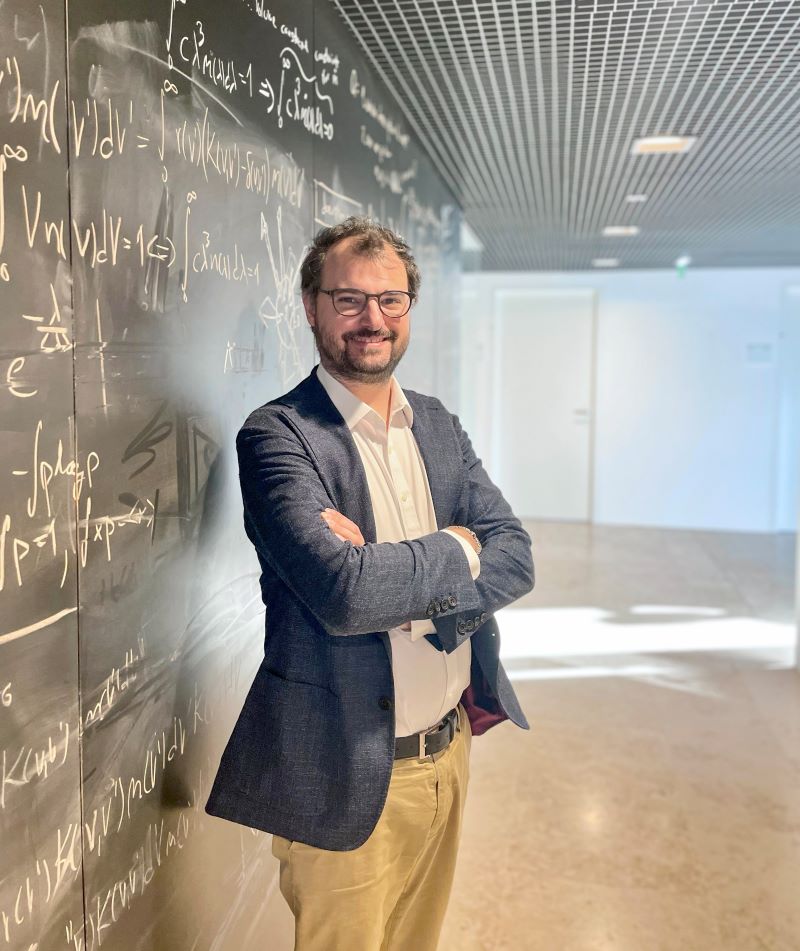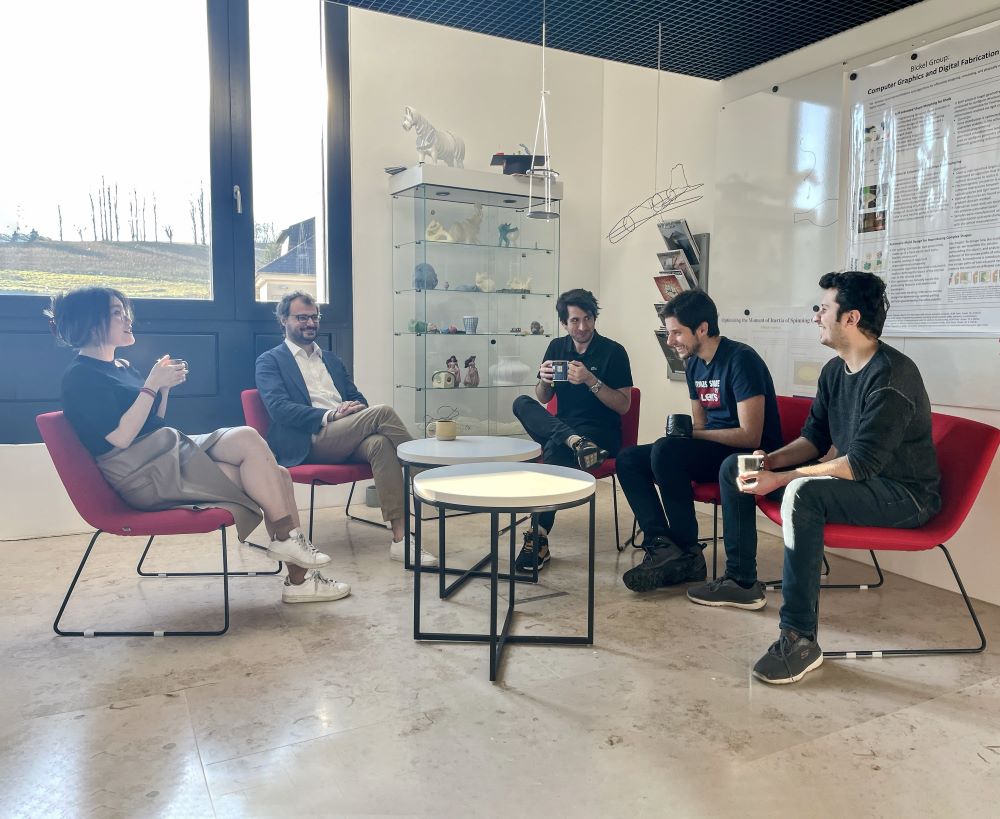December 11, 2023
Causal AI: The Future of Machine Learning
AI researcher Locatello joins ISTA’s faculty as an assistant professor
Artificial intelligence swarms into our daily life through text, images or music. It is not an omniscient tool; it generates content similar to the data it was trained with. Still, AI technologies struggle to process causal relationships. Francesco Locatello, new assistant professor at the Institute of Science and Technology Austria (ISTA), is trying to solve that problem. His research focuses on advancing AI and machine learning to understand cause-and-effect connections, marking the next step in their evolution.

Sunlight floods through the large window and offers a stunning view of the campus from Francesco Locatello’s new office. However, one’s attention is immediately drawn from the panorama to his photographs, which are still somewhat sparsely arranged in the room. At first glance, the images seem unrecognizable, only to become almost familiar upon closer inspection. A green circle with rough edges; a flattened star-shaped pink scribble. It rings a bell. “That green one is cabbage, and the others are starfishes,” Locatello explains, “they look like the real thing, yet not entirely.” The colorful prints are AI art from Tom White and resemble how machines see the world. They strongly connect to the computer scientist’s research. “Part of my research is to help machines understand and perceive the world the way we do,” he says.
Correlation is not causation
Locatello’s research focuses on machine learning and artificial intelligence (AI), two topics that, especially in the past five years, have come a long way. Nowadays, we find ourselves surrounded by a number of different AI models that make our lives easier: they recognize images, reproduce natural languages, encode knowledge or are embedded in self-driving cars that go up and down the hills of San Francisco. However, present-day machine learning mostly just scratches the surface of reality. It works well only under consistent experimental conditions and might overlook real-world changes, shifts in settings, or how things unfold over time.
To push the frontiers of machine learning, Locatello’s group is dedicated to learning causal representations and models from large chunks of data. “We are particularly fascinated in AI systems that are able to comprehend the causal links between events. Understanding why a specific action leads to a distinct outcome is of great interest to us,” Locatello continues. The researchers develop theory and scalable algorithms that empower AI agents to grasp cause-and-effect connections—relationships between two things where one leads to the next (think of falling dominoes or Newton’s cradle). This also entails grasping the impact of interventions, and how their effect in the real world is reflected in the data computers receive. These causal AI systems strive to offer new insights that predictive and generative AI models alone may struggle to derive from historical data.
“As AI technologies become more and more embedded in our daily lives, it’s crucial to understand what would happen if we would actively intervene in these systems,” the computer scientist explains. “My long-term goal is to shape AI systems to discover knowledge about the world that we previously didn’t know. And in a way, this is not unreasonable.”
Locatello believes that ISTA’s characteristic of bridging different research fields will help in this regard. “One of the reasons why I chose ISTA as my next step was indeed the broad spectrum of researchers spanning different disciplines. How awesome would it be if we could train AI models that eventually discover something about astronomy, the universe or the climate?”

A scientific career: From Venice to Vienna
Growing up in a small town near Venice, Locatello has always been into computers. His love for AI technologies, research and machines evolved naturally as he became a PhD student at ETH Zurich and the Max Planck Institute for Intelligent Systems Tübingen from 2016 to 2020. During this time, he collaborated with Google as a research consultant and as a research software engineer intern. After graduating, he became a senior applied scientist, leading his own research team at Amazon Web Services focusing on causal representation learning.
With multiple honors—the best paper award at the International Conference on Machine Learning (ICML) in 2019 and the Hector Stiftung-Preis for outstanding scientific achievements in the field of machine learning—in his pocket, Locatello now joins ISTA’s faculty, eager to kick-start his research.
To evoke a touch of Italy year-round, a potted olive and lemon tree adorn Locatello’s office. The lemon tree even bears bright-yellow fruits—perhaps a sign of a successful future on Campus.



